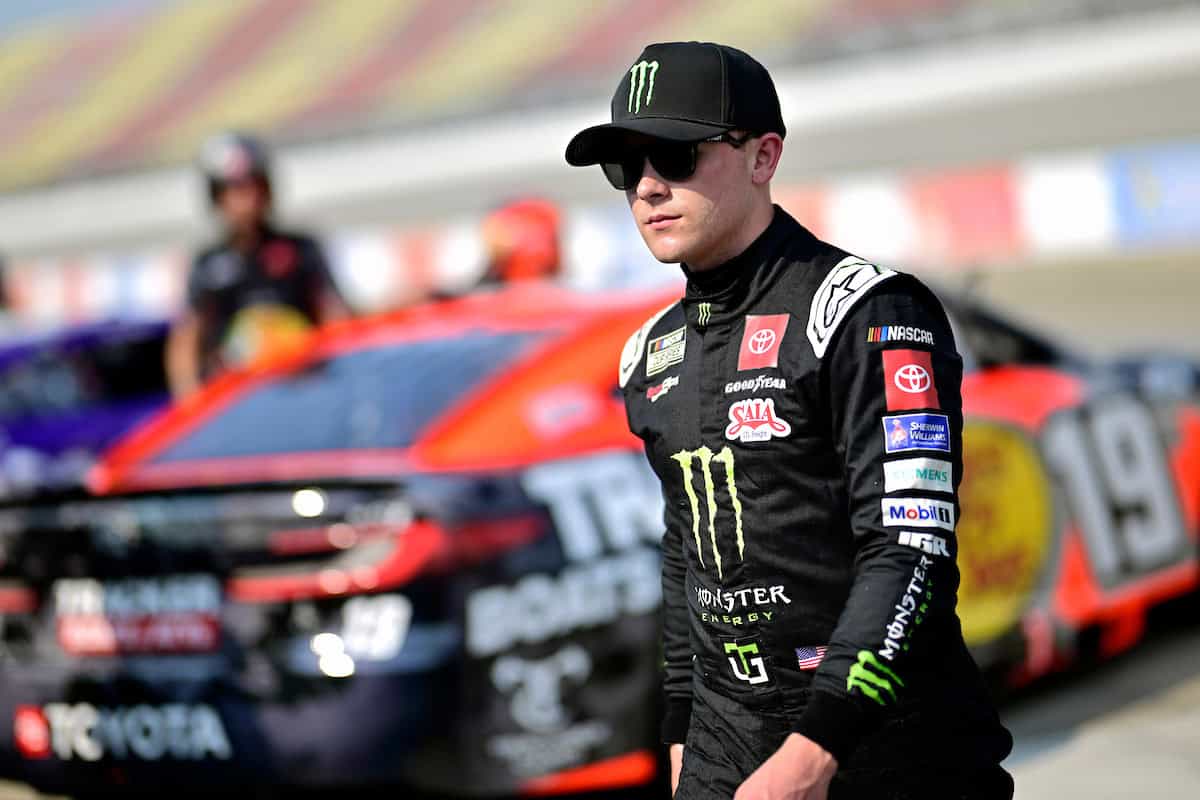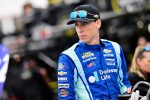Who will win first: Ty Gibbs or Carson Hocevar?
A year ago, for Gibbs, driving for his grandfather’s team Joe Gibbs Racing, it looked like it was only a matter of time. However, at least until Sunday (June 15) in Mexico City, he seemed to have cooled off. Meanwhile, Spire Motorsports’ Hocevar has had the speed to contend, even if he hasn’t always had the luck to go with it.
In his third full season, Gibbs has 103 Cup starts under his belt. Hocevar made his 61st start in Mexico and is in his second full year.
Other winless full-time drivers include Zane Smith (61 starts, second year), Todd Gilliland (124 starts, fourth year), Ryan Preece (203 starts, sixth year), John Hunter Nemechek (93 starts, third year), Ty Dillon (261 starts, seventh year), Noah Gragson (91 starts, second year), Riley Herbst (24 starts, first year) and Cody Ware (122 starts, third year). Note: full season here means that the driver attempted at least 30 races in a year. Several drivers have partial seasons as well.
But how long does it take for a champion to win? The numbers, of course, vary widely. Kevin Harvick won in just his third start in his first full year. The longest it took for a champion to earn his first victory was Dale Jarrett, who first won in his 129th start in his fifth full season.
For the purpose of consistency, we’ll look at drivers whose careers began in the Modern Era, because prior to then, what determines a full-time season is vague. Many drivers didn’t enter every event but still contended for championships prior to that. The schedule was shortened in the Winston Cup era, and title contenders had to run every week, or very close to it. That makes Darrell Waltrip the first champion on this particular list, as his career started the earliest in the Modern era of all the champions.
There is, of course, no scientific formula that correlates how long a driver takes to get to win No. 1 to whether he’ll win a title. Equipment matters, and it may keep some drivers from contending if they aren’t in capable cars at points in their careers. Even eliminating pre-Modern Era numbers, drivers have won titles under different formats and for different teams. Still, based on history, after a certain number of winless starts, a subsequent title is unlikely.
Only two drivers have taken more than 100 starts to win and become champions (Jarrett and Bill Elliott (Though both Chase Elliott and Kyle Larson clock in at 99). Time probably is getting short for the likes of Dillon and Preece; either winning a title now would be a record here. Ware is just shy of Jarrett’s number but is far shy of Jarrett’s equipment.
Average number of races to first win for titles won in:
Playoff era (2014-present): 48.9 starts
Postseason era (2004-2013): 42.6
Modern Era pre-2004: 55.7
All years since 1948: 53.8
The takeaway here is that winning right away doesn’t necessarily lead to a championship down the road. Even the sport’s top talents take time to develop.
However, most conquer the learning curve relatively early in their careers. Only Jarrett has taken more than three full seasons to win a race among the drivers who make the cut as champions whose careers began in the Modern Era. He won in his fifth. Bill Elliott won in his first full year but had at least one race for eight years prior to that.
Where the data does change slightly is for drivers with multiple titles. Of the nine in this group, the average first win came in race 32, and all won in their first full-time season. For seven-time champs Dale Earnhardt and Jimmie Johnson, the average falls to 15 races.
Bottom line? Taking a year or two or even three to win a race doesn’t mean a driver isn’t capable of winning a title. 40-60 starts equates to roughly two full seasons, which is still a fairly quick learning curve. It’s even quicker for the sport’s elite, drivers who have gone on to win two or more titles.
So where does that leave youngsters like Gibbs and Hocevar? For Gibbs, statistically anyway, the pressure is on with over 100 starts behind him. He’s in the best equipment, which adds to the notion that he should be winning if he’s a future champion.
Hocevar may be in the better spot of the two. He’s slightly past the average race number at 61. But three of the last four different champions have taken 68 or more races to win, and they had stronger equipment than Hocevar did, at least in his first season (Spire has improved dramatically in 2025).
Individually, number of races to first win certainly isn’t a stat to base a young driver’s future success on. However, it’s an interesting piece of a driver’s overall picture.
How quickly can a driver learn to race with the veterans up front and get the most of his equipment? The quicker that happens, the more time he has to contend for titles. The longer it takes, the harder it becomes to get rides in good cars (unless you’re Gibbs and your grandfather owns the team). Without the equipment, the wins become that much harder to come by.
Winning early may not be a guarantee, but it can lead to better opportunities. The longer a driver stays winless, the more those opportunities can dry up.
Amy is an 20-year veteran NASCAR writer and a six-time National Motorsports Press Association (NMPA) writing award winner, including first place awards for both columns and race coverage. As well as serving as Photo Editor, Amy writes The Big 6 (Mondays) after every NASCAR Cup Series race. She can also be found working on her bi-weekly columns Holding A Pretty Wheel (Tuesdays) and Only Yesterday (Wednesdays). A New Hampshire native whose heart is in North Carolina, Amy’s work credits have extended everywhere from driver Kenny Wallace’s website to Athlon Sports. She can also be heard weekly as a panelist on the Hard Left Turn podcast that can be found on AccessWDUN.com's Around the Track page.





